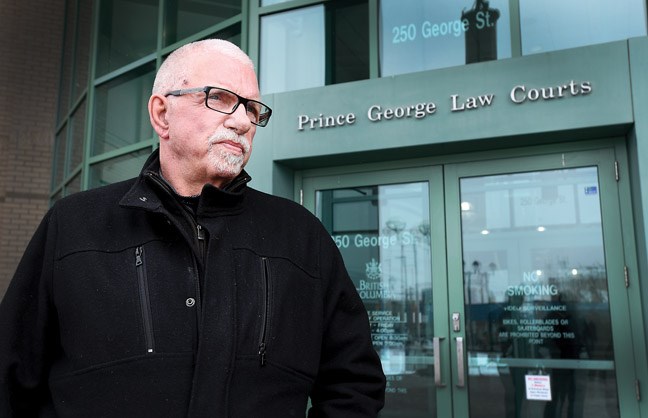The long-running legal battle between Prince George lumber manufacturer John Brink and BCR Properties Ltd. over a failed land deal was back in court Wednesday as lawyers wrangled over the groundwork for a looming trial.
Brink is alleging BCR committed civil fraud by failing to provide full disclosure of the state of a landfill that made up nearly a quarter of the 100 acres at 1077 Boundary Rd. in the BCR Industrial Site where he had intended to build a new sawmill and consolidate his other operations.
A five-week trial on the matter had been set to start in January but was put on hold when Brink secured a new lawyer, Jon Duncan, to argue the case.
Duncan subsequently submitted an amended notice of civil claim, which BCR is opposing on a handful of grounds, prompting a hearing at the Prince George courthouse before B.C. Supreme Court Justice Marguerite Church.
In arguing for the amendments, Duncan provided a summary of the conflict from his client's view.
Once home to one of the Netherlands sawmills, Duncan said a portion of the site was used for about 40 years as a landfill, primarily to deal with wood waste until it was decommissioned in 1999.
By that time, Duncan said, the landfill had grown to 22 acres and 10 metres deep in waste, some of it toxic and non-biodegradable.
In early 2005, Brink approached BCR about purchasing the property. By that time, the provincial government's deal to let Canadian National lease the running rights along the B.C. Rail track for 60 years with an option to lease for another 90 years was completed and BCR had been mandated to sell its remaining property. BCR agreed to start leasing 70 acres to Brink with the intention of eventually selling him the 100 acres he required once it was subdivided from the 250-acre parcel.
Duncan said his client was told the land was "clean and remediated" but turned out to be only capped and replanted. Whether that meets the definition of clean and remediated will probably be an issue at trial, Duncan said, but contended Brink did not know there was a landfill on the site until 2008 or 2009, nor the scope of its size.
"It huge, it's bigger than the entire downtown of Prince George," Duncan said.
Moreover, he said it's situated in the middle of the property.
By the time Brink found out about the landfill, he had spent $10 million pouring a foundation for the new sawmill. He also contends it will cost nearly $14.5 million to properly remediate the landfill, which he has said is located within 100 metres of the Fraser River.
Brink claims BCR continued to misrepresent the property's state and only in 2012 did he learn through freedom of information requests that the subdivision process was being delayed in part because of the Ministry of Environment's inability to grant a release for the site. The subdivision was needed to secure bank financing.
The information gathered from the freedom of information requests appear to be most of the grounds for the amendments Duncan is seeking.
BCR's lawyer, Tom Moran, countered that much of what was discovered was either already established or irrelevant. He further argued that in large part Brink is trying to relitigate a claim dismissed by the court. Moran said matters came to a head when the parties' respective consultants produced "diametrically opposed" environmental reports.
While BCR's consultant found there was no need to remove the landfill, Brink's consultant found there was. Brink refused BCR's request for a second appraiser and for another environmental consultant to be brought in to test the site.
In a 2010 decision, the court agreed Brink could refuse further testing. By April 2011, his option to purchase had expired and that same year, a B.C. Supreme Court Justice dismissed Brink's allegation that BCR had breached the option by not completing the appraisal.
Moran read a section of that decision from Justice Laura Gerow: "It is Brink who has refused to authorize further site investigations, not BCRP. Nor has Brink provided any reasonable explanation as to why it refused to allow the environmental consultant to do the further site investigations he says are necessary to resolve the conflict between the parties experts' reports."
In 2016, Brink filed an application to appeal the decision and it was dismissed in October.
In November, Duncan was hired as Brink's new counsel and in reviewing the matter, "discovered that although facts supporting claims for breach of honest performance and failure to disclose latent defects were included in the statement of facts, these causes of action were not specifically pleaded," according to the latest submission.
Church reserved decision on what amendments to the notice of civil claim will be allowed to go ahead. A trial is tentatively scheduled to go ahead in October and November or January and February 2018.



